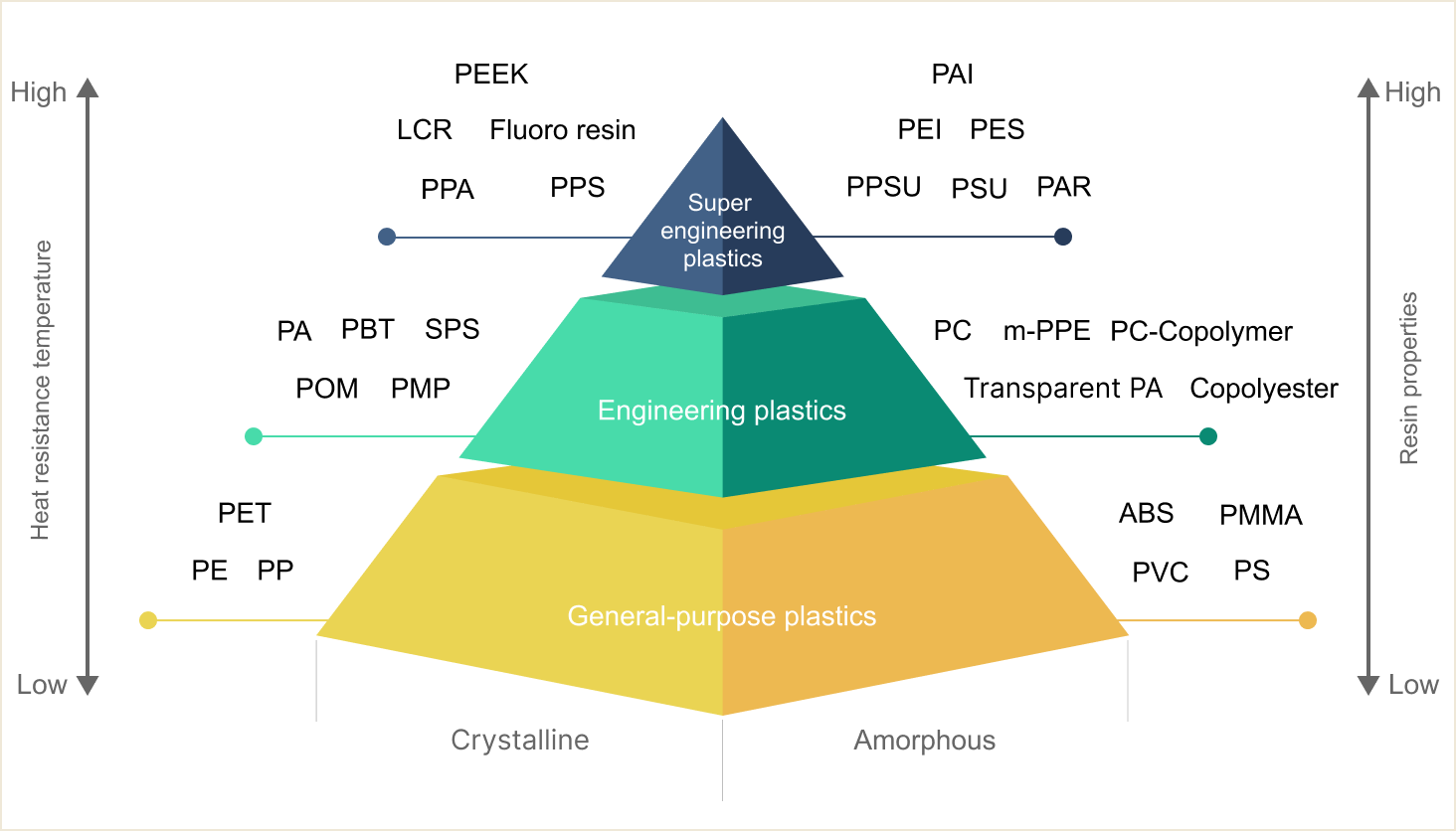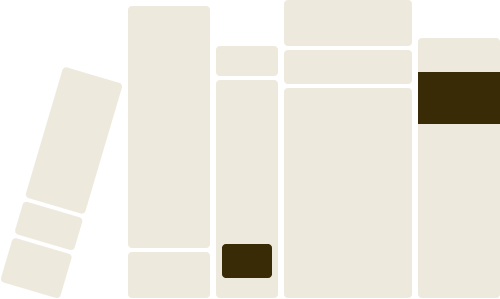Overview
Applications
Comparison

Chemical formula

Specific gravity
1.38

Thermal properties
70
Tg(℃)

260
Tm(℃)

Characteristics

Heat resistance

Electrical insulation

Chemical resistance

Flammable

No dimensional stability

Low temperature resistance

Difficult to injection mold
Commentary
A polycondensation product of terephthalic acid and ethylene glycol. It is a crystalline resin. When the crystallinity is low, it is transparent and low heat resistance. When the crystallinity is high, it is opaque and high heat resistance.
・C-PET (crystalline PET): Slowly cooled, opaque and high heat resistant (about 220℃)
・A-PET (amorphous PET): Rapidly cooled, transparent and low heat resistant (about 60℃)
・G-PET (amorphous PET): Ethylene glycol partially replaced with cyclohexanedimethanol, inhibiting crystallization
・GF-PET is a glass fiber reinforced injection molding material of PET
Key points
- As it is, it has not high impact strength, but when it is made into thread or film and stretched, its strength increases.
- Polyester thread made from PET is a very strong fiber that is soft to the touch, dries quickly, and has excellent wrinkle resistance, abrasion resistance, and dyeability. Therefore, it is the most widely used synthetic fiber.
- Natural materials are suitable for extrusion, spinning, and blow molding, but not for injection molding.

Egg cartons

Reason for adoption
Made from recycled materials from used PET bottles (recyclability, high tensile strength, transparency)
Clothes (polyester fiber)

Reason for adoption
Easy to make threads, easy to color (spinnability, dyeability)
PET bottles

Reason for adoption
Good at blow molding process, hot filling is possible by crystallizing (heat resistance), transparency



Crystalline

Polyethylene

Polypropylene

Polyethylene
Terephthalate

Polyoxymetylene /
Polyacetal

Polybutylene
Terephthalate

Polyamide 6 /
Polyamide 66

Syndiotactic
Polystyrene

Poly Phenylene Sulfide

Polyphthalamide

Liquid Crystal Polymer

Fluorocarbon Polymers

Polyether-etherketone

Polymethyl-pentene






























